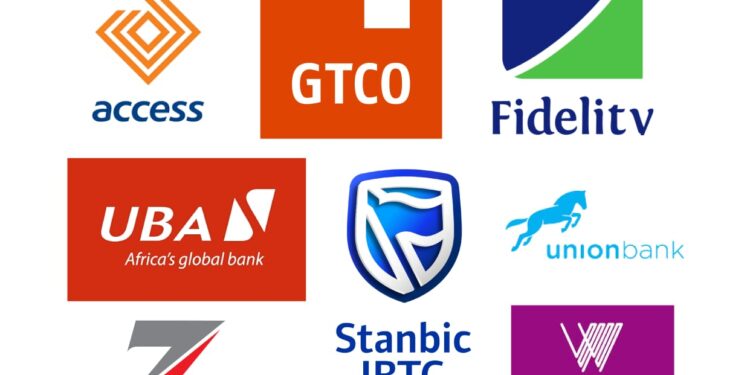In 2023, Nigeria’s leading banks collectively generated N392 billion from electronic business, driven by a shift towards cashless transactions encouraged by the Central Bank of Nigeria’s (CBN) policies. This substantial revenue highlights the growing adoption of digital banking channels by Nigerians.
United Bank for Africa (UBA) led the sector with an impressive N125.5 billion in e-business income, marking a 59% increase from N78.9 billion in 2022. Access Holdings followed, earning N99.1 billion, a significant 66% rise from the previous year’s N59.6 billion.
FBN Holdings, although yet to release its full audited financial results, reported a 20% increase in e-business revenue, growing from N55 billion in 2022 to N66 billion in 2023. Zenith Bank and GTCO Holdings also showed positive trends, with Zenith Bank’s e-business revenue rising by 13% to N51.8 billion and GTCO Holdings seeing an 8% increase to N40.8 billion.
The revenue from electronic business includes earnings from mobile applications, USSD channels, ATMs, agency banking, internet banking, and POS payments. The data reflects a broader trend in the Nigerian financial sector towards digital transactions.
Despite this growth, analysts suggest that further investment in technological infrastructure is essential. This would address issues of transaction failures and enhance security, thereby fostering greater customer confidence and expanding e-business revenue.
The financial statements of these banks also indicate increased spending on IT infrastructure. For instance, Access Holdings boosted its IT expenditure by 75%, from N44.6 billion in 2022 to N78 billion in 2023. UBA, which saw the highest e-business earnings, increased its IT spending by 149% to N23.2 billion. Zenith Bank and GTCO Holdings also raised their IT investments, emphasizing the need for robust digital platforms.
The rise in e-business revenue is largely attributed to the CBN’s cashless policy, which limits cash withdrawals and encourages electronic transactions. This policy has made digital banking more convenient for many Nigerians, contributing to the sector’s growth.
Kayode Joseph, CEO of Chronis Technology, noted that the CBN’s policy is positively impacting both the banks and their customers by making electronic transactions more accessible. However, he emphasized the need for banks to invest in technology to mitigate issues like transaction failures and fraud, which still deter some users.
The expansion in e-business revenue mirrors the broader growth in Nigeria’s electronic payment industry. Data from the Nigeria Inter-Bank Settlement System (NIBSS) revealed that electronic payment transactions surged to N600 trillion in 2023, a 55% increase from N387 trillion in 2022. December 2023 saw the highest transaction value, with Nigerians spending N71.9 trillion via electronic channels during the festive season.
This growth trend underscores the increasing acceptance and reliance on digital financial services in Nigeria, positioning the country’s banking sector for continued advancement in the electronic payment landscape.











